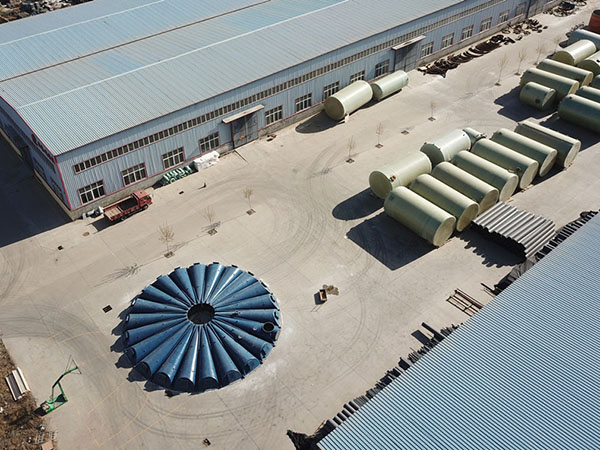
-
 Afrikaans
Afrikaans -
 Albanian
Albanian -
 Amharic
Amharic -
 Arabic
Arabic -
 Armenian
Armenian -
 Azerbaijani
Azerbaijani -
 Basque
Basque -
 Belarusian
Belarusian -
 Bengali
Bengali -
 Bosnian
Bosnian -
 Bulgarian
Bulgarian -
 Catalan
Catalan -
 Cebuano
Cebuano -
 China
China -
 China (Taiwan)
China (Taiwan) -
 Corsican
Corsican -
 Croatian
Croatian -
 Czech
Czech -
 Danish
Danish -
 Dutch
Dutch -
 English
English -
 Esperanto
Esperanto -
 Estonian
Estonian -
 Finnish
Finnish -
 French
French -
 Frisian
Frisian -
 Galician
Galician -
 Georgian
Georgian -
 German
German -
 Greek
Greek -
 Gujarati
Gujarati -
 Haitian Creole
Haitian Creole -
 hausa
hausa -
 hawaiian
hawaiian -
 Hebrew
Hebrew -
 Hindi
Hindi -
 Miao
Miao -
 Hungarian
Hungarian -
 Icelandic
Icelandic -
 igbo
igbo -
 Indonesian
Indonesian -
 irish
irish -
 Italian
Italian -
 Japanese
Japanese -
 Javanese
Javanese -
 Kannada
Kannada -
 kazakh
kazakh -
 Khmer
Khmer -
 Rwandese
Rwandese -
 Korean
Korean -
 Kurdish
Kurdish -
 Kyrgyz
Kyrgyz -
 Lao
Lao -
 Latin
Latin -
 Latvian
Latvian -
 Lithuanian
Lithuanian -
 Luxembourgish
Luxembourgish -
 Macedonian
Macedonian -
 Malgashi
Malgashi -
 Malay
Malay -
 Malayalam
Malayalam -
 Maltese
Maltese -
 Maori
Maori -
 Marathi
Marathi -
 Mongolian
Mongolian -
 Myanmar
Myanmar -
 Nepali
Nepali -
 Norwegian
Norwegian -
 Norwegian
Norwegian -
 Occitan
Occitan -
 Pashto
Pashto -
 Persian
Persian -
 Polish
Polish -
 Portuguese
Portuguese -
 Punjabi
Punjabi -
 Romanian
Romanian -
 Russian
Russian -
 Samoan
Samoan -
 Scottish Gaelic
Scottish Gaelic -
 Serbian
Serbian -
 Sesotho
Sesotho -
 Shona
Shona -
 Sindhi
Sindhi -
 Sinhala
Sinhala -
 Slovak
Slovak -
 Slovenian
Slovenian -
 Somali
Somali -
 Spanish
Spanish -
 Sundanese
Sundanese -
 Swahili
Swahili -
 Swedish
Swedish -
 Tagalog
Tagalog -
 Tajik
Tajik -
 Tamil
Tamil -
 Tatar
Tatar -
 Telugu
Telugu -
 Thai
Thai -
 Turkish
Turkish -
 Turkmen
Turkmen -
 Ukrainian
Ukrainian -
 Urdu
Urdu -
 Uighur
Uighur -
 Uzbek
Uzbek -
 Vietnamese
Vietnamese -
 Welsh
Welsh -
 Bantu
Bantu -
 Yiddish
Yiddish -
 Yoruba
Yoruba -
 Zulu
Zulu
cpvc frp pipe a reliable choice for industrial applications
CPVC FRP Pipe A Reliable Choice for Industrial Applications
In the ever-evolving landscape of industrial applications, the choice of materials plays a critical role in ensuring efficiency, durability, and sustainability. One of the standout options available today is the combination of Chlorinated Polyvinyl Chloride (CPVC) and Fiberglass Reinforced Plastic (FRP), collectively known as CPVC FRP pipe. This innovative piping solution has gained traction across various sectors due to its superior performance characteristics.
Durability and Corrosion Resistance
One of the most significant advantages of CPVC FRP pipes is their exceptional resistance to corrosion. Traditional metal pipes often succumb to rust or other forms of degradation when exposed to harsh chemicals and environmental elements. In contrast, CPVC is inherently resistant to a wide range of corrosive substances, making it an ideal choice for industries such as chemicals, waste treatment, and wastewater management. Combined with FRP’s strength and durability, CPVC FRP pipes can withstand extreme conditions without compromising structural integrity.
Lightweight Yet Strong
Another highlight of CPVC FRP pipes is their lightweight nature. Compared to metal piping solutions, CPVC FRP pipes are considerably lighter, which simplifies installation and reduces labor costs. Their ease of handling does not come at the expense of strength. Thanks to the reinforcement provided by fiberglass, these pipes are capable of enduring high pressures and mechanical stresses, making them reliable for demanding industrial applications.
Thermal Resistance
cpvc frp pipe a reliable choice for industrial applications

Thermal performance is also a vital consideration in industrial settings. CPVC FRP pipes can withstand elevated temperatures, often exceeding the limitations of standard PVC pipes. This feature is particularly advantageous in applications involving hot water transfer or steam, where heat resistance is paramount. The ability to maintain structural integrity at higher temperatures reduces the risk of failure, contributing to overall operational reliability.
Cost-Effectiveness
While the upfront cost of CPVC FRP pipes may be slightly higher than traditional options, the long-term savings are noteworthy. Their durability and resistance to wear and tear translate into lower maintenance costs and fewer replacements over time. Industries looking to minimize downtime and increase productivity will find that investing in CPVC FRP technology leads to significant savings in the long run.
Sustainability Features
In today’s industrial landscape, sustainability is more than just a trend; it’s a necessity. CPVC FRP pipes are not only recyclable but also contribute to energy savings due to their thermal efficiency. Choosing these pipes supports environmentally conscious initiatives, helping businesses align with global sustainability goals.
Conclusion
In summary, CPVC FRP pipes represent a reliable choice for a wide range of industrial applications. Their corrosion resistance, lightweight construction, thermal resilience, cost-effectiveness, and sustainability make them a superior alternative to conventional piping materials. As industries continue to prioritize efficiency and longevity in their operations, CPVC FRP technology stands out as a forward-thinking solution that meets modern challenges head-on. By investing in CPVC FRP pipes, businesses can enhance their operational capabilities while contributing positively to environmental sustainability.
Latest news
-
Exploring the Benefits of Top Hammer Drifter Rods for Enhanced Drilling PerformanceNewsJun.10,2025
-
High-Precision Fiberglass Winding Machine for GRP/FRP Pipe Production – Reliable & Efficient SolutionsNewsJun.10,2025
-
FRP Pipes & Fittings for Shipbuilding - Corrosion-Resistant & LightweightNewsJun.09,2025
-
Premium FRP Flooring Solutions Durable & Slip-ResistantNewsJun.09,2025
-
Premium Fiberglass Rectangular Tanks Durable & Lightweight SolutionNewsJun.09,2025
-
Tapered Drill String Design Guide Durable Performance & UsesNewsJun.09,2025









